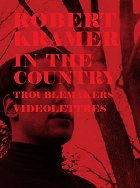
Director:
Robert KramerGuión:
Robert KramerCámara:
Robert MachoverReparto:
William DevaneReseñas (1)
The first "feature-length" (notice that this terminology is a concession to the film industry complex) film of an always politically motivated artist filmmaker - it is clear to everyone that there was no place for such a combination in Hollywood. With the characteristic anticipation of every prophecy fulfilled (since the film historians already know how it turned out), this film anticipates many of its filmmaker's destinies: interest in both global and internal revolution, not losing sight of the human dimension, interest in nonconformist artistic forms, and the necessity of not only spiritual and inspirational emigration to Europe, where Robert Kramer later lived and died... Here, explicit allusions to Antonioni and the fashionable theme of alienation from others condense with the theme of alienating oneself through the loss of political motivation and the dilemma of every revolutionary - to succumb to the death drive through self-destructive complete loyalty to an Idea greater than life and every individual (for humanism, not seeing the person), or to turn to individual people as the embryos of humanity in every human being and reconcile "normal" life with one's own engagement? The slightly sexist personification of these contradictory tendencies, around which the main point of the film is built, traditionally attributes to Woman the role of the "principle of reality" and to Man the death drive, aware that anyone who does not look completely into the depths is just another compromising coward. Verified. However, Kramer did not only make a political essay-agitation in the style of Chris Marker or Cinétracts around 1968, but he also combined it with the aforementioned Antonioni and at times the film also reminds of Rohmer with his fondness for constantly analyzing human relationships and morality through dialogue; or Cassavetes' Faces.
()